Whilst many love our forests and many believe they know what’s best for our forests, not very many have the experience and knowledge to properly manage them. At the heart of the tension between western science and Traditional Owners is who has this knowledge.
There’s knowledge of Traditional Owners, developed over tens of thousands of years of caring for Country (and still developing as we collaborate with western experts). And there’s knowledge developed by academics who have studied forests for decades. Both contribute to caring for forests.
But when one kind of knowledge holder fails to listen – indeed, dismisses – the other, forests lose.
Long term monitoring, research and analysis is essential to understand the effects of a changing climate and broader environmental impacts. Many subtle ecological shifts may go undetected in smaller surveys and shorter timeframes. In many regards both the scientific community and Traditional Owners agree on this point.
The concept of long-term, broad scale, field research is not new. As the General Manager of DJAARA and a proud Dja Dja Wurrung and Wamba Wamba woman, Cassandra Lewis says:
“From a modern science, empirical ecological perspective it is, but to Traditional Owners it has just been the way Country has been managed for 65,000 years. Surely the longest running field data survey in the world.”
She continues:
“Ours are the oldest living cultures on the planet. Critical to that statement is that they are living and evolving. We are blessed to have inherited 65,000 years of knowledge and connection to Country. In evolving, we include new understandings and respond to changing environments. Like western science, we incorporate new theories and understandings to strengthen our practice and achieve better outcomes for Country.”
But still, at every turn, Dja Dja Wurrung People must fight to reinstate our rights to care for Culture.
Whether it be the right to speak language after it was banned on many missions where we were driven like livestock, the right to practice Culture when we needed permits to walk our own Country, or make decisions about the management of our stolen Country.
The support of those who advocate for us to work on Country is invaluable, but we are ready now to make decisions about our Country. Limiting our relationship to mere stakeholders instead of decision-makers who can actively heal and grow and tend to the health of Country, is continuing to colonise.
Whilst some may say that is important for Traditional Owners to have access to scientific research to make appropriately informed decisions on Country, we would say that all land managers need access to Traditional Owner knowledge to make all decisions on Country.
“When we share our plans for Country and invite people to walk with us and understand our Culture, we expect respect. We do not ask for Confidentiality or Ethics Agreements to be signed because in respecting you we assume that you respect us. And whilst many do, that mindset of our knowledge not being as important or as rigorous as western science prejudices responses,” Ms Lewis also said.
This is about more than two perspectives; this is about the structure of power attributed to one perspective that lessens the consideration of the other perspective. It is also about the active and prejudiced questioning of our knowledge, its genesis and validity.
Let’s turn our backs on divisive discourse and accept that all knowledge is valuable. In doing so we can decolonise Country and respect 65,000 years of ancient research and practice as much as we do western science.
̶ ENDS ̶
Download: DJAARA Media Statement - The Ugly Truth About Who's Speaking for Our Tall Forests











































































